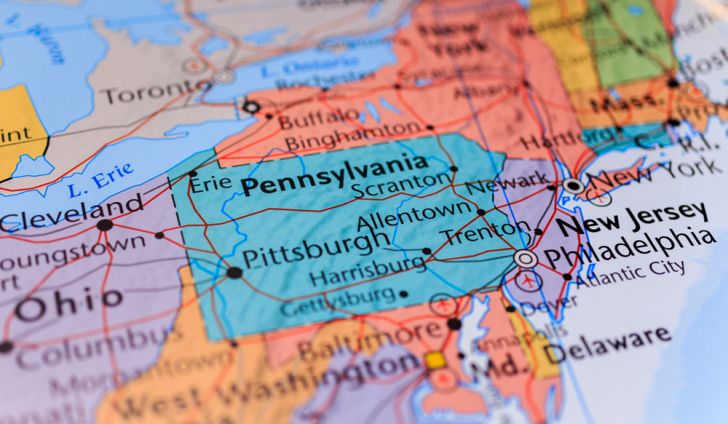Pennsylvania Lawmaker sends letter to colleagues outlining update to cannabis legalization bill
Rep. Jake Wheatley (D) is giving cannabis legalization another go. The Pennsylvania lawmaker recently sent a letter to House members announcing his plans to submit an extensive bill for cannabis reform. His primary goals are to encourage restorative justice and social equity for underprivileged community members.
Wheatley, who is serving the 19th Legislative District, has long been a proponent for cannabis reform in Pennsylvania. In 2019, he introduced a similar bill to legalize recreational cannabis across the state. However, this year’s bill is set to be “the most comprehensive and well-vetted legislation providing for a legal adult-use cannabis industry.”
“My legislation is a culmination of social and criminal justice reform, aided by legal adult-use. My efforts have been and will continue to be endless in the pursuit of delivering legal adult-use to the more than 60 percent and growing of Pennsylvanians who support it. I hope you will listen to your constituents and support my legislation,” reads an excerpt from the letter, which was initially reported by the Pennsylvania Capital-Star.
Pennsylvania’s recreational cannabis bill would focus on expungement
A large segment of Wheatley’s letter was dedicated to his proposed mission for dealing with the “failed war on drugs.” He claims that an endless list of people have fallen victim to Pennsylvania’s “unreasonable” drug laws. In an attempt to reverse the problem, he says that people who have been imprisoned for “nonviolent drug offenses” should be released and have their criminal records expunged.
“The failed war on drugs produced countless victims to heavy handed, unreasonable drug laws. Perhaps the most important aspect of this legislation is my Cannabis Clean Slate,” wrote Wheatley. “By legalizing the use of cannabis and simultaneously expunging records and releasing non-violent drug offenders from prison, the Commonwealth can do its part to repair the damage of the last 40 years.”
Of course, Wheatley had to admit the existence of opposition to cannabis reform in Pennsylvania. The representative said that an “important bipartisan conversation” is being blocked by anti-cannabis lawmakers. Nonetheless, after taking stakeholder recommendations and feedback into consideration, Wheatley was brimming with confidence as he introduced the amended version of Pennsylvania’s recreational cannabis bill.
“Even if some of my colleagues aren’t willing to be a part of getting it right, people from all over the state have shown how much passion they have for this issue, and it made it really easy to want to make improvements to my bill,” he declared.
Pennsylvania’s recreational cannabis taxes discussed in Wheatley’s letter
Another element of Wheatley’s letter about Pennsylvania’s recreational cannabis laws focused on the tax structure. If his proposal is accepted, business-to-business transactions would have a wholesale tax rate of 10 percent. However, this tax rate would not be applicable to cultivators and processors who currently operate cannabis farms in Pennsylvania.
For consumers, an excise tax of approximately six percent would be imposed on retail sales for the initial two years of recreational cannabis legalization. The excise tax rate would increase to 12 percent for the ensuing two years, before inflating to 19 percent from thereon. Pennsylvania’s cannabis taxes would benefit a Commonwealth Reinvestment Fund; designed to fund a number of social programs.
“Keeping the tax initially low and allowing it to grow over time is a great example of the advice we heard during numerous meetings with stakeholders,” Wheatley explained. “This legislation is the evidence of continued good work being done, even when we aren’t yet able to meet the final goal.”
Local communities could benefit from recreational cannabis in Pennsylvania
Some ways in which Wheatley believes that cannabis wholesale and excise taxes could benefit local communities include the development of a student loan reimbursement initiative, a grant that would encourage females and minority groups to get involved in Pennsylvania’s recreational cannabis market, as well as after-school programs.
Moreover, Wheatley wants to educate the general public about the benefits, uses and safety guidelines for adult-use cannabis. He intends on doing this by using tax funding to launch public education campaigns.
Although Pennsylvania’s recreational cannabis bill could receive some opposition from lawmakers, Wheatley does have the support of Gov. Tom Wolf (D) and Lt. Gov. John Fetterman (D). Public support is pretty high, too. A poll conducted by Franklin & Marshall College in September 2017 showed that 59 percent of individuals surveyed want adult-use cannabis to be legalized.








